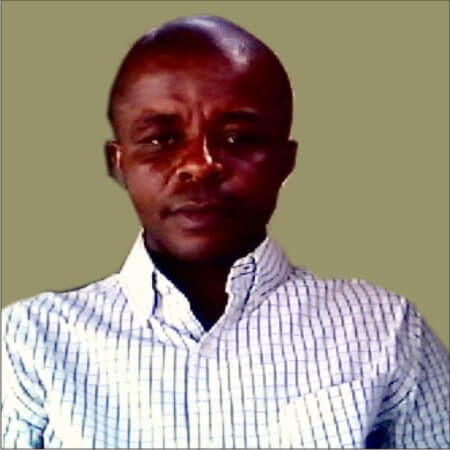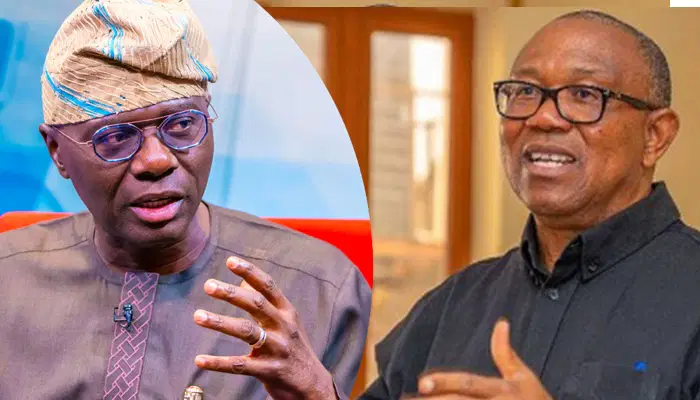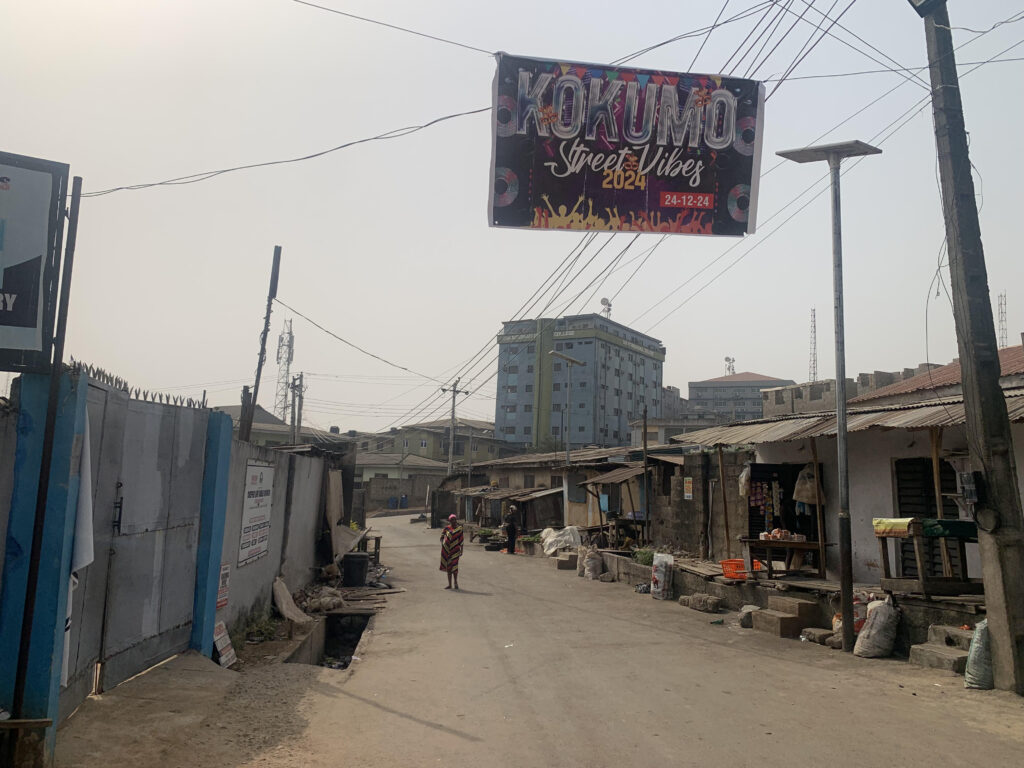Re: Resolving The Housing Deficit Challenge in Lagos State

By Jerome- Mario Utomi
I remember how participants at a focused group discussion held few weeks before the Corona virus pandemic (COVID-19), induced lock down in Lagos, bemoaned the short falls in the nation’s housing needs despite the existence of the globally recognized right to adequate housing which is both a human right and one of the basic needs of man borne out of desire for security, privacy and protection from negative impacts of the environment.
Separate from using powerful statistics from credible sources to make it abundantly clear that Nigeria is currently faced with over 17 million housing deficit and may require about 700,000 new houses to be built yearly to close the gap, the gathering which was aimed at finding urgent solution to housing challenge in Nigeria, warned that under this condition, it may be thought audacious to talk of creating a better society while we are still battling with the problems of battered economy arising from corruption, social vices, decayed institutions and homelessness.
The event which had as theme; Abrogation of Land Use Act; Key to Unlocking the Housing Goldmine in Nigeria, was organized by the Social and Economic Justice Advocacy (SEJA). A Lagos based Non-Governmental Organization that among other objectives advocates that international aid to institutions and government in Nigeria should only come in forms of training and technical assistance, not in grants that could be corruptly siphoned by public officials.
Given the aforementioned housing challenges, it is unsurprising that the Lagos state government as part of its ploy to tackling the challenge in the state activated the Public Private Partnership schemes. Akinderu-Fatai, the Honourable Commissioner for Housing in Lagos State, in a recent piece entitled; Resolving Housing Deficit in Lagos, among other things noted that there are over 30 private investors who were in joint partnership with the State in developing some housing schemes.
The involvement of private sector in increasing the housing stock, he noted is quite crucial. It helps in reducing direct governmental expenditure thereby releasing more funds for bridging other infrastructural gaps. While government provides unencumbered land for these investors, the onus then lies on the partner to build according to given and agreed-upon specifications within a time limit. These developers entered into partnership, by a legal relationship with the State Government to build on government acquired land and upon completion give to the State government an agreed number of the housing units which commensurate with the cost of land and a percentage of the profit.
Among st his analysis, what calls for emphasis here, and relevant to the present discourse, is Mr. Commissioner’s claim that they are greatly concerned about affordable housing for a large section of the people especially those in the low income bracket….. This is being addressed through the reorganization of our informal sector which is where many of our people operate.
Specifically, while such claims looks good peripherally and may trigger plaudits and encomium, there are major indicators and pitfalls which in my views render the whole conversation as an argument that may not hold water particularly when faced with embarrassing facts. Or still typify as mere palliatives that cure the effect of an ailment while leaving its root cause to thrive.
Fundamentally, housing challenge aside presenting the state to the world as a government entity that lacks the prerequisite care for its citizens, the truth is that if the present administration in the state government has clarified processes and opportunities for citizen’s participation in the development and involvement, or is doing anything substantial to develop effective housing plan and delivery systems for its less privileged citizens, Lagosians will not have to look very far to see the impact. And the state needs no opinion/feature articles on the pages of the newspaper to announce it.The fact they say, speaks for itself.
Using as focal points the administration of Alhaji Lateef Jakande as executive governor of Lagos State in 1979, it is factually documented that his administration sincerely implemented the four cardinal policies of; housing, education, transportation and infrastructure. To demonstrate such resolve, the administration introduced housing and educational programs targeting the poor, building new neighbourhood primary and secondary schools and providing free primary and secondary education. Jakande’s government constructed over 30,000 housing units. The housing units were built cheaply, but were of great value. Some of the housing units include low cost estates in Amuwo-Odofin, Ijaiye, Dolphin, Oke-Afa, Ije, Abesan, Iponri, Ipaja, Abule Nla, Epe, Anikantamo, Surulere, Iba, Ikorodu and Badagry.
To fund some of the projects, Jakande increased the tenement rates and price of plots of land in affluent areas of Victoria Island and Lekki Peninsula and the processing fees for lottery, pools and gaming licenses.
For another thing, there are reasons that ring apprehension about the state government’s choice of partnership.
Unarguably, Goal 17 of the United Nations 2030 sustainable agenda has partnership and collaboration at its centre and calls for smart, ecosystem thinking, co-creation and alignment of various intervention efforts by the public and private sectors and civil society in bridging infrastructural gap-as it is obvious that the government alone can no longer provide solution to the crushing challenge of inadequate facilities like good roads and housing.
That notwithstanding, previous experience shows that such programme often always becomes more elitist-friendly and manifests capacities that endangers not only state’s economic security but perpetuate poverty, erode socioeconomic well being and consolidate powerlessness among helpless and hapless citizens.
To further explain the above are some separate but related questions; how much will those houses be sold when completed? Who will monitor/regulate the sales of those buildings in order to protect the buyers interest? How many of the low income earners can afford it? How accessible will the mortgage arrangement? Why is it private sector driven as against direct labour which has in the past proved to be more cost effective? And why is the present narrative by the state devoid of what becomes the fate of the initial occupants of such lands? And most importantly, what is the state government’s housing budget for the year?
Regardless of what others may say, the state can shout affordable housing as many times as they want but anyone who believes that property market is a free market is seriously deluded. It does have many characteristics of a free market but it is always subject to periodic manipulation by the operators. It is extremely important to underline that such manipulations have not one objective but two; first of all, the operators as capitalists naturally seek to maximize profit and are not ready under any guise to provide low cost houses. But more significantly, they often always manipulate the government.
You may ask how?
The answer is barefaced. Government routinely partners with the private sector but, their capacity to monitor process is always limited and questionable. Private sector on their part, understand better the location and nature of market failures and the barriers that inhibits such sector. This naturally creates asymmetric business environment and disproportionate advantage.We must not fail to remember that the objective of capitalism is to further enrich people who have money to invest.
In the final analysis, I also hold the opinion that the government must do something to help Lagosians out of the present housing challenge by drawing one or two lessons from Pa Jakande, the peoples Governor style of low cost houses. This should be done not merely for political consideration but from the views of national development and sustenance of our democracy.
Jerome-Mario Utomi is Lagos-Based Media consultant.




